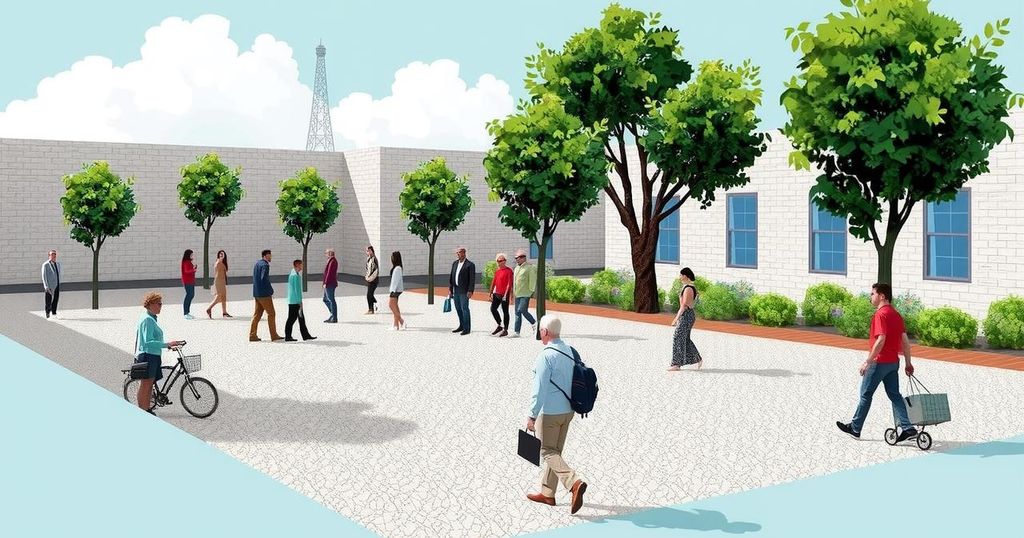COP29: Repression of Civic Space Threatens Future Climate Action

COP29 in Azerbaijan revealed a troubling escalation in political repression, with over 300 prisoners detained amid inadequate climate commitments. The event highlighted the systematic silencing of civil society and environmental defenders, raising concerns about future climate negotiations as authoritarian regimes shape discussions. Calls for a transition to more inclusive hosting practices are essential to ensure genuine representation in climate actions moving forward.
The recently concluded COP29 in Baku has significantly highlighted the worrying trend of civic space repression in Azerbaijan, where over 300 political prisoners remain detained amid a climate finance discussion that many deem inadequate. The situation has worsened since February 2023, with political prisoners’ numbers soaring by 243%. Local civil society advocates face unprecedented repression, stifling critiques of both human rights and environmental policies in the host nation. Florian Irminger, President of the Progress & Change Action Lab, remarked that repression levels have reached historical highs not seen since the Soviet era, raising concerns about the implications for future climate negotiations.
The implications of Azerbaijan’s oil-centric agenda on international climate agreements are becoming increasingly concerning. As Azerbaijan prepares to implement commitments made during COP29, questions arise regarding the country’s ability to advocate for genuine climate action while simultaneously catering to fossil fuel interests. The critical voices of civil society and environmental defenders have been consistently marginalized. Irminger warns that the approach taken by Azerbaijan sets a troubling precedent for similar regimes, allowing world leaders to overlook civil representatives’ perspectives at critical climate discussions.
The experience of COP28 in the UAE and COP27 in Egypt underscores a disturbing trend where authoritarian regimes suppress dissent during vital climate negotiations. While COP27 yielded a historic climate finance agreement, it simultaneously saw the harassment and intimidation of civil society figures. Likewise, COP28 witnessed a concerted effort to silence critics in a country that heavily relies on oil revenues. These developments highlight the urgent need to ensure civic space and environmental defenders can participate freely and openly in discussions that shape our planet’s future.
Notably, the Progress & Change Action Lab has supported the Climate of Justice Initiative to combat Azerbaijan’s oppressive tactics toward activists, especially in the wake of Anar Mammadli’s recent arrest—widely viewed as retaliation for advocating climate justice. Mammadli’s plight symbolizes Azerbaijan’s ongoing crackdown on dissent, particularly after a recent spike in arrests linked to protests addressing environmental degradation. The broader implications of these actions suggest an intent to inhibit public discourse on environmental issues, particularly ahead of critical elections.
Looking forward to future climate negotiations, experts emphasize the importance of ensuring that hosting duties are shared only by nations that uphold human rights and environmental protections. The UNFCCC must advocate for the inclusion of civil society voices, ensuring that climate conferences serve the interests of all rather than narrowing them down to fossil fuel agendas. As Brazil prepares to host COP30, there are optimistic signs that more environmental and human rights advocates will be incorporated into the decision-making process, although the need for systemic change remains pressing.
The topic of this article revolves around the dynamics of civic space repression in Azerbaijan, particularly in light of its hosting of COP29, the UN climate conference. The significant increase in the number of political prisoners in Azerbaijan reflects a broader trend of authoritarianism stifling dissent and engagement from civic activists. The growing silencing of environmental human rights defenders raises critical concerns regarding the influence of unreformed regimes in global climate negotiations, compromising the voices of those most affected by climate change. The history of prior COPs indicates a pattern where authoritarian countries repress civil society participation, thus heightening the need to reconsider hosting practices and advocate for genuine inclusion in climate discussions.
In conclusion, the developments surrounding COP29 in Azerbaijan underscore the critical intersection of climate negotiations and civic freedom. The repression faced by civil society within such contexts threatens the integrity and effectiveness of global climate agreements. Moving forward, it is imperative for the United Nations and international advocates to prioritize safeguarding civic space and ensuring the representation of environmental defenders in climate discussions. Any future host nation for climate conferences must demonstrate a commitment to upholding human rights and fostering meaningful participation from civil society to advance global climate goals effectively.
Original Source: www.globalcitizen.org






